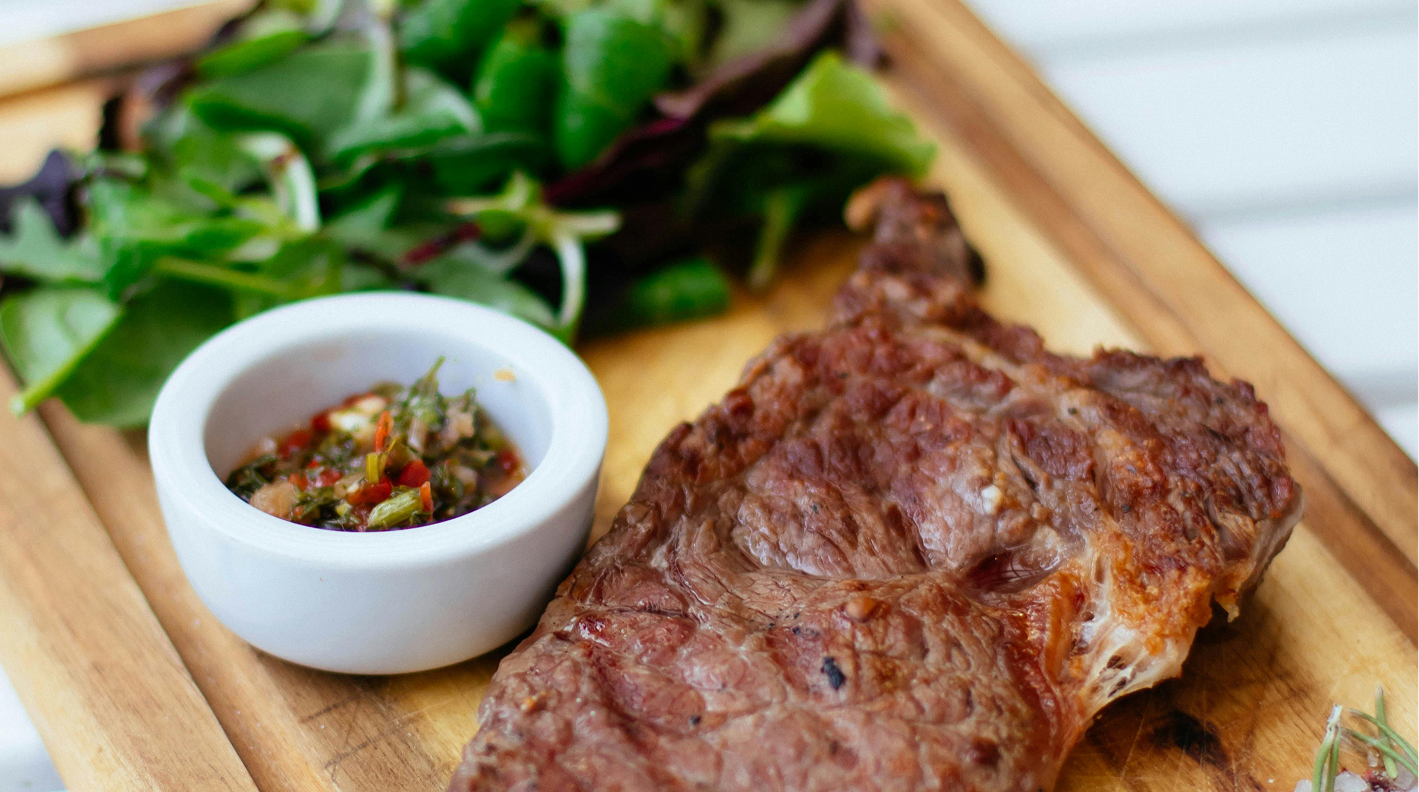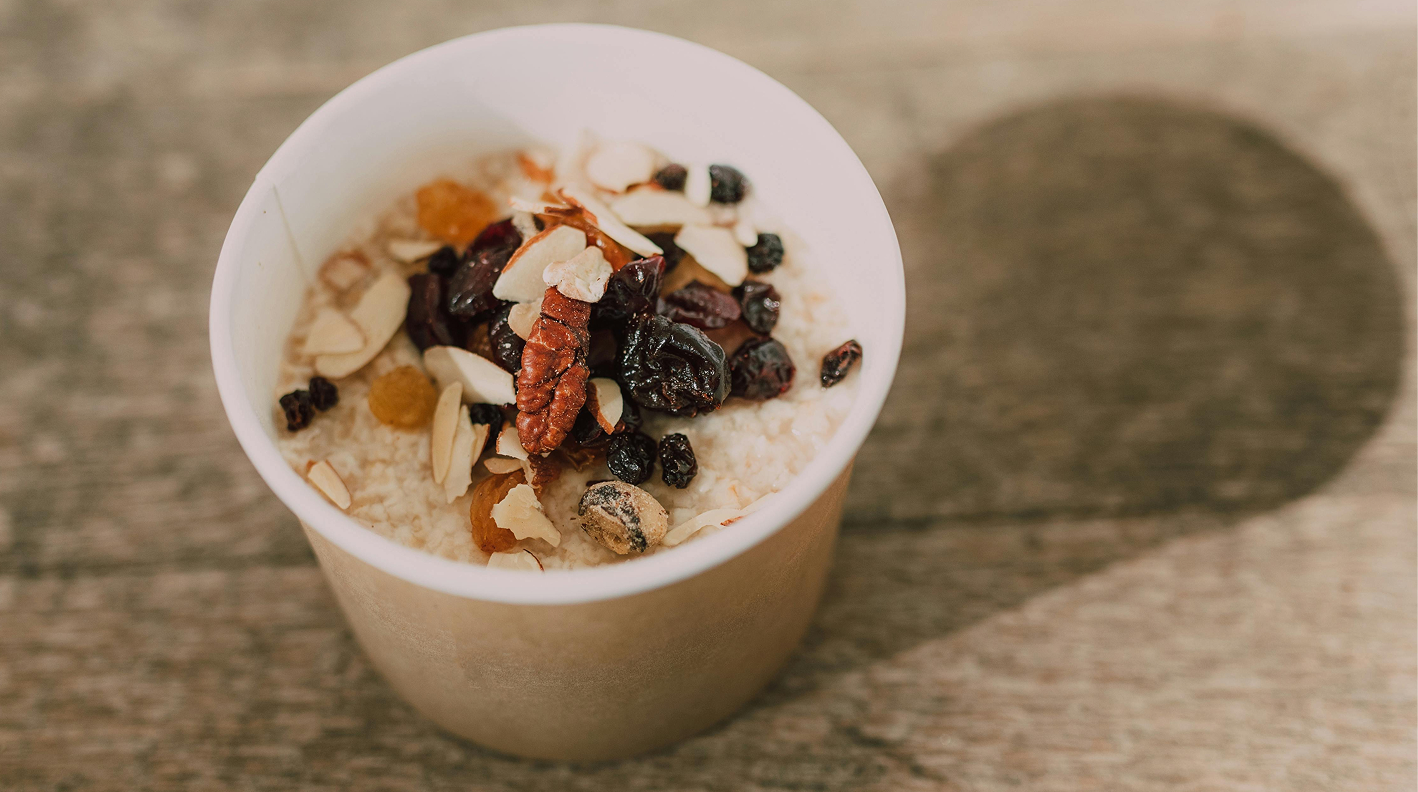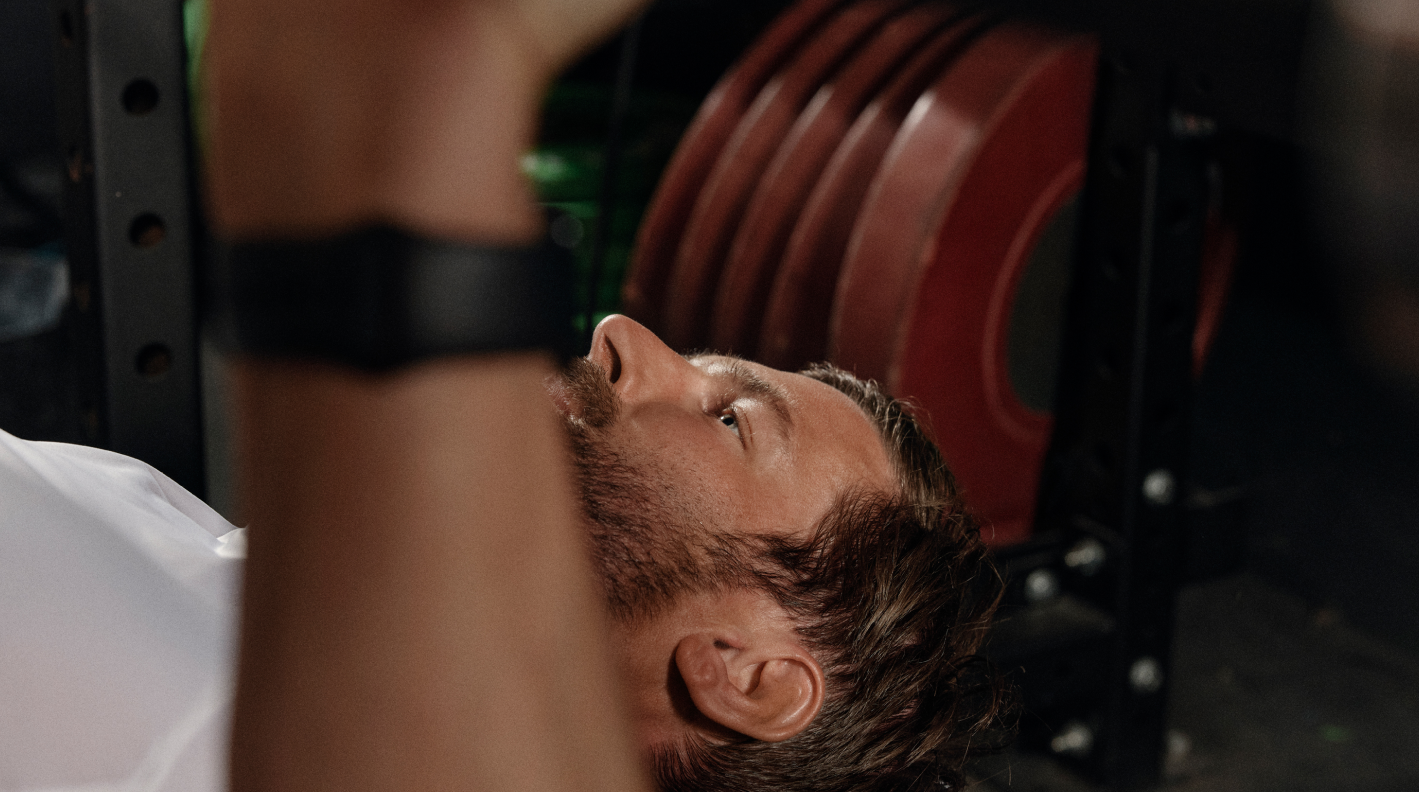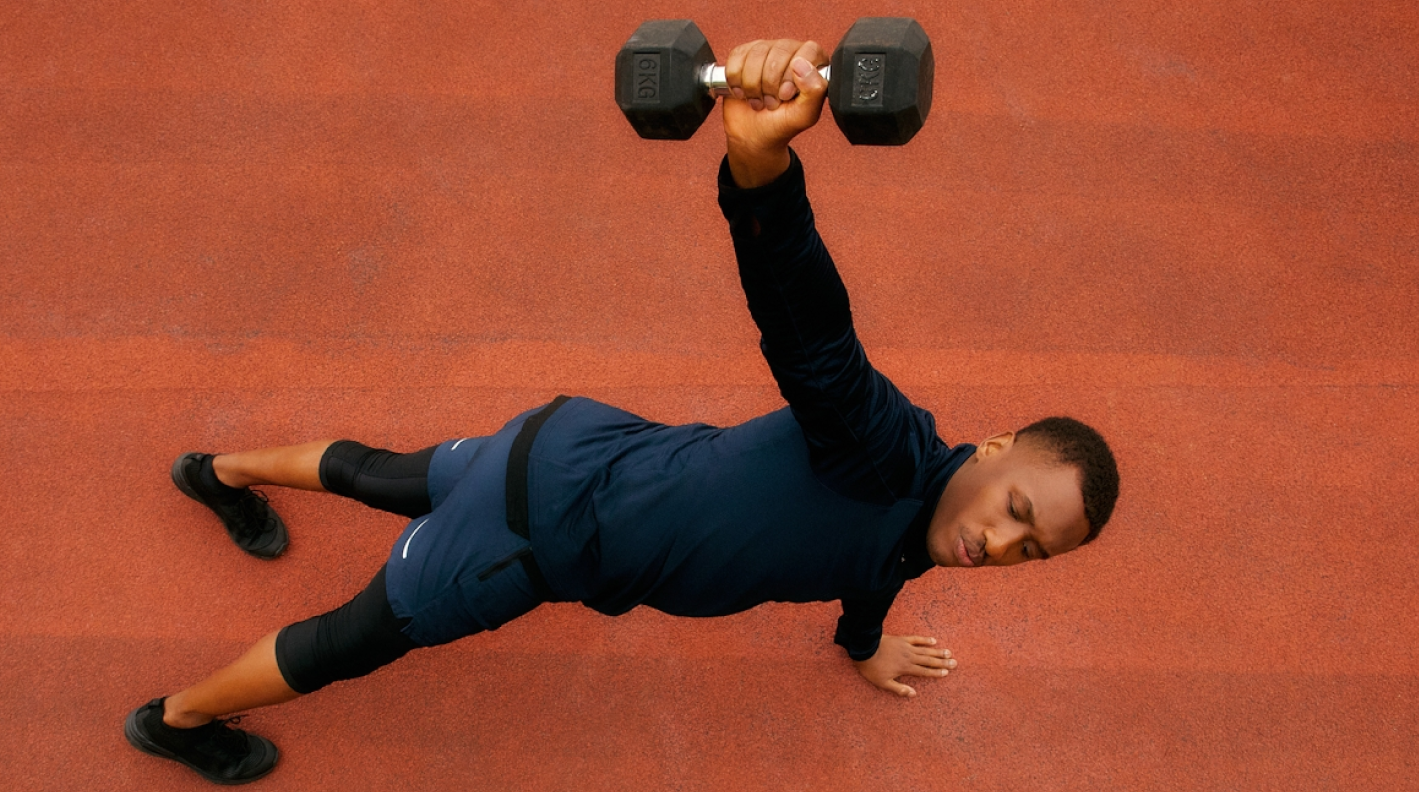H2O myths: How much water should you drink every day?
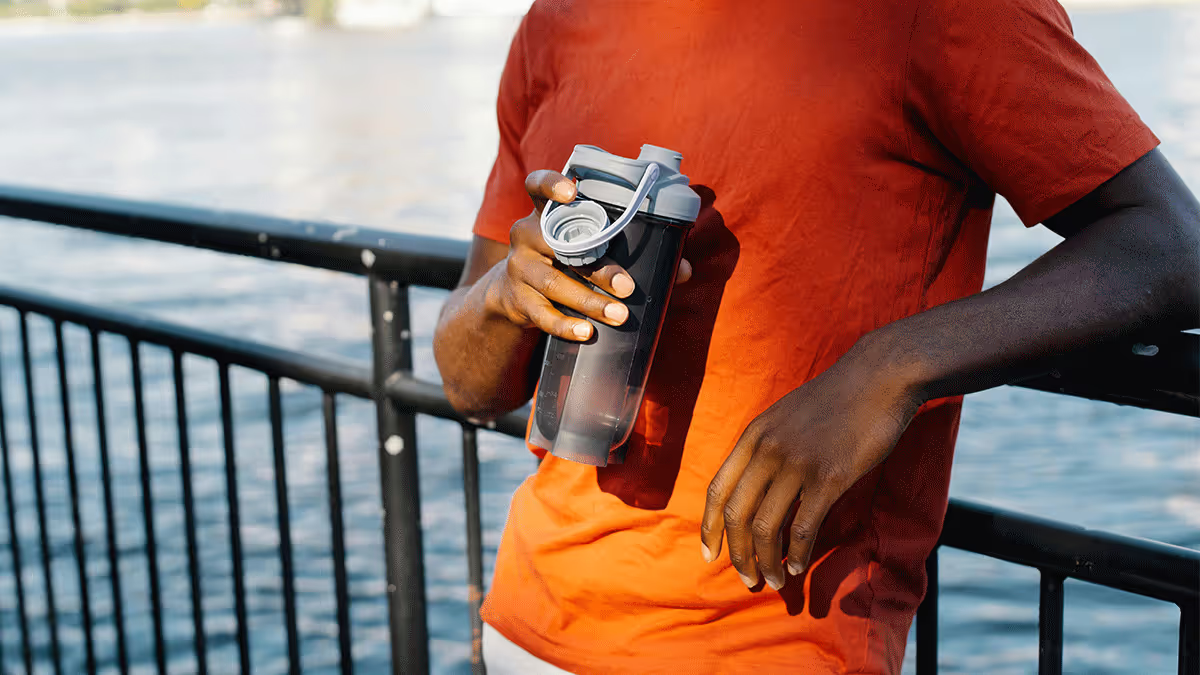
Key takeaways
- Hydration needs vary by individual. The “8 glasses a day” rule is outdated; thirst, urine colour, and body weight changes are better indicators.
- Even mild dehydration can affect mood, focus, cortisol levels, and sleep, while overhydration can cause low sodium levels during endurance exercise.
- Coffee and tea don’t dehydrate you, but alcohol does — and electrolyte drinks are only necessary for long, sweaty workouts or endurance events.
Water is essential to life as we know it. H2O makes up 70% of our body weight but hydration is often misunderstood so let's bust some myths.
Myth 1: We must drink 8 glasses of water a day
Water intake isn’t one size fits all. The myth of 8 glasses a day has no clear origin but may have originated from a 1940s article suggesting 2L total water intake (food plus beverages!) is adequate, but this lacks evidence [1][2].
For the average person, solid foods contribute roughly 20% of total water intake, while beverages like coffee, tea and other drinks make up a large portion of total water intake.
In reality, generalised heuristics for water intake are fraught as our body's needs vary depending on environmental conditions, physical activity, losses (e.g. vomiting, diarrhoea, diuretics, etc) and individual metabolism.
Our bodies have very fine-tuned processes that regulate our fluid and salt balance so it's important to listen to our body and act on cues, like the following.
Thirst
Our thirst is largely regulated by receptors in our brain and our carotid arteries that detect osmotic pressure and blood volume — hence why it's important to tune in and satisfy thirst as the most important cue.
Urine colour
This method should be piss-easy — maintain urine colour in the top 2 bars of the 8-shade scale — but beware of confounding factors (alcohol, vitamins, medications and some foods).
Body weight change
Perhaps not always practical but a useful ad-hoc experiment to remind ourselves of the extent of fluid loss from sleeping, exercise, saunas, etc — simply weigh in pre/post and rehydrate the delta while being mindful of electrolyte replacement.
Lab tests
We include plasma osmolality (UEC blood panel) in our blood work panel to inform any discussion on hydration with Compound members but there are other tests such as urine tests and new saliva tests that are emerging.
Myth 2: Hydration is only relevant to athletes
Hydration affects our cognitive performance and everyday endurance just as much as athletic capacity.
Dehydration affects cognition and mood
- Cortisol levels are elevated with acute dehydration [3]
- Attention, immediate memory, and psychomotor skills [4]
- Mood [5]
- Working memory, long-term memory, and executive function appear preserved, particularly if dehydration is from exercise [4].
Dehydration affects sleep quality
Dehydration may affect our evening melatonin cycles and poor sleep quality may lead to greater dehydration (less fluid retention), potentially creating a vicious loop [6]; noting evidence is mixed for mild dehydration [7].
Dehydration affects athletic performance
The majority of evidence surrounding dehydration results in the following:
- Aerobic maximal power at >3% dehydration [8]
- Muscle strength at >5% dehydration [8]
Modest levels of dehydration up to 2–3% of body weight are tolerated well, with few health risks or exercise under-performance [9].
Perhaps counter-intuitive but many endurance athletes have competed in a dehydrated state without significant performance issues; this may be due to increased body temperature and reduced cardiac output/stroke volume [10].
Overall, I see elevated cortisol and sleep quality as the most important adverse impact of dehydration on performance and longevity.
Myth 3: The more, the better
It is possible to overdo it and become hyperhydrated.
Excessive hydration before prolonged exercise and excessive hydration following exercise can result in low electrolyte levels and in extreme cases can result in exercise-associated hyponatremia (EAH).
Symptomatic EAH occurs in 0.1% to 1.0% of endurance athletes with the most common signs being nausea, vomiting, headache and swelling of the hands and feet. It’s best avoided through electrolyte replacement and avoidance of excessive fluid replacement during exercise.
A good guide is to avoid replacing more fluid than lost during exercise but EAH is unlikely to cause for concern for most of us [11].
Myth 4: Caffeine dehydrates us
Caffeine is a weak diuretic and the net effect does not dehydrate us. The fluid lost from caffeine's diuretic effect is not greater than the amount of fluid in a cup of coffee so net/net it is not dehydrating; even more so if exercising [12].
Alcohol on the other hand is a powerful diuretic — by blocking antidiuretic hormone (ADH) — so it’s important to be mindful of hydration before/during/after a session to avoid exacerbating the adverse effects of alcohol [13].
Myth 5: Sports drinks are optimally formulated
Mainstream sports drinks like Gatorade contain water, sugar, and electrolytes, are marketed to recreational athletes and are often consumed during everyday occasions.
These drinks contain excessive amounts of sugar. In a non-endurance context, our bodies have sufficient available energy in glycogen and fat that we simply don’t need excessively sugary drinks to perform.
So when might we need a sports drink?
- Excessive sweat loss: There’s no magic number when we should start replacing electrolytes. It’s typically recommended for long sessions (e.g. >1 hour) or if there's been significant sweat loss.
- Race/match day or long training sessions: Endurance events can exhaust our glycogen supply and lead to hypoglycaemia and decreased performance aka “hitting the wall”. Hypo/Isotonic sports drinks or energy gels are the easiest ways to achieve this but it's best to experiment with these before race day and ingest them slowly to avoid runner’s trot! [14][15]
Hypotonic electrolyte drinks optimally replace both water and sodium at a similar concentration to which it is lost from the body during exercise [16][17].
Practical tips
Ways to ensure you're appropriately hydrated throughout the day.
Drink upon waking
We can lose up to 0.5-1L of water during sleep (sweat, respiration, etc.) especially as most men are hot sleepers (it can vary greatly depending on sleep environment and metabolism). So, it's a good habit to rehydrate in the morning.
Keep hydration handy
Not all of us like plain water but it's important to reduce the friction from satisfying the first signs of thirst by keeping hydration handy and jazzing it up, if need be. I think a 4L gym-junkie water bottle is a bit extreme but whatever works.
Listen to your body
It's easy to be distracted by an always-on lifestyle but we must tune into our thirst, monitor our urine colour, and listen to cues (e.g. agitation) that remind us to hydrate.
Hydrate after dinner
Going for a walk after dinner to improve digestion and glucose tolerance is a great evening ritual and so is having some water or herbal tea an hour or more before bed.
Water is essential to life as we know it. H2O makes up 70% of our body weight but hydration is often misunderstood so let's bust some myths.
Myth 1: We must drink 8 glasses of water a day
Water intake isn’t one size fits all. The myth of 8 glasses a day has no clear origin but may have originated from a 1940s article suggesting 2L total water intake (food plus beverages!) is adequate, but this lacks evidence [1][2].
For the average person, solid foods contribute roughly 20% of total water intake, while beverages like coffee, tea and other drinks make up a large portion of total water intake.
In reality, generalised heuristics for water intake are fraught as our body's needs vary depending on environmental conditions, physical activity, losses (e.g. vomiting, diarrhoea, diuretics, etc) and individual metabolism.
Our bodies have very fine-tuned processes that regulate our fluid and salt balance so it's important to listen to our body and act on cues, like the following.
Thirst
Our thirst is largely regulated by receptors in our brain and our carotid arteries that detect osmotic pressure and blood volume — hence why it's important to tune in and satisfy thirst as the most important cue.
Urine colour
This method should be piss-easy — maintain urine colour in the top 2 bars of the 8-shade scale — but beware of confounding factors (alcohol, vitamins, medications and some foods).
Body weight change
Perhaps not always practical but a useful ad-hoc experiment to remind ourselves of the extent of fluid loss from sleeping, exercise, saunas, etc — simply weigh in pre/post and rehydrate the delta while being mindful of electrolyte replacement.
Lab tests
We include plasma osmolality (UEC blood panel) in our blood work panel to inform any discussion on hydration with Compound members but there are other tests such as urine tests and new saliva tests that are emerging.
Myth 2: Hydration is only relevant to athletes
Hydration affects our cognitive performance and everyday endurance just as much as athletic capacity.
Dehydration affects cognition and mood
- Cortisol levels are elevated with acute dehydration [3]
- Attention, immediate memory, and psychomotor skills [4]
- Mood [5]
- Working memory, long-term memory, and executive function appear preserved, particularly if dehydration is from exercise [4].
Dehydration affects sleep quality
Dehydration may affect our evening melatonin cycles and poor sleep quality may lead to greater dehydration (less fluid retention), potentially creating a vicious loop [6]; noting evidence is mixed for mild dehydration [7].
Dehydration affects athletic performance
The majority of evidence surrounding dehydration results in the following:
- Aerobic maximal power at >3% dehydration [8]
- Muscle strength at >5% dehydration [8]
Modest levels of dehydration up to 2–3% of body weight are tolerated well, with few health risks or exercise under-performance [9].
Perhaps counter-intuitive but many endurance athletes have competed in a dehydrated state without significant performance issues; this may be due to increased body temperature and reduced cardiac output/stroke volume [10].
Overall, I see elevated cortisol and sleep quality as the most important adverse impact of dehydration on performance and longevity.
Myth 3: The more, the better
It is possible to overdo it and become hyperhydrated.
Excessive hydration before prolonged exercise and excessive hydration following exercise can result in low electrolyte levels and in extreme cases can result in exercise-associated hyponatremia (EAH).
Symptomatic EAH occurs in 0.1% to 1.0% of endurance athletes with the most common signs being nausea, vomiting, headache and swelling of the hands and feet. It’s best avoided through electrolyte replacement and avoidance of excessive fluid replacement during exercise.
A good guide is to avoid replacing more fluid than lost during exercise but EAH is unlikely to cause for concern for most of us [11].
Myth 4: Caffeine dehydrates us
Caffeine is a weak diuretic and the net effect does not dehydrate us. The fluid lost from caffeine's diuretic effect is not greater than the amount of fluid in a cup of coffee so net/net it is not dehydrating; even more so if exercising [12].
Alcohol on the other hand is a powerful diuretic — by blocking antidiuretic hormone (ADH) — so it’s important to be mindful of hydration before/during/after a session to avoid exacerbating the adverse effects of alcohol [13].
Myth 5: Sports drinks are optimally formulated
Mainstream sports drinks like Gatorade contain water, sugar, and electrolytes, are marketed to recreational athletes and are often consumed during everyday occasions.
These drinks contain excessive amounts of sugar. In a non-endurance context, our bodies have sufficient available energy in glycogen and fat that we simply don’t need excessively sugary drinks to perform.
So when might we need a sports drink?
- Excessive sweat loss: There’s no magic number when we should start replacing electrolytes. It’s typically recommended for long sessions (e.g. >1 hour) or if there's been significant sweat loss.
- Race/match day or long training sessions: Endurance events can exhaust our glycogen supply and lead to hypoglycaemia and decreased performance aka “hitting the wall”. Hypo/Isotonic sports drinks or energy gels are the easiest ways to achieve this but it's best to experiment with these before race day and ingest them slowly to avoid runner’s trot! [14][15]
Hypotonic electrolyte drinks optimally replace both water and sodium at a similar concentration to which it is lost from the body during exercise [16][17].
Practical tips
Ways to ensure you're appropriately hydrated throughout the day.
Drink upon waking
We can lose up to 0.5-1L of water during sleep (sweat, respiration, etc.) especially as most men are hot sleepers (it can vary greatly depending on sleep environment and metabolism). So, it's a good habit to rehydrate in the morning.
Keep hydration handy
Not all of us like plain water but it's important to reduce the friction from satisfying the first signs of thirst by keeping hydration handy and jazzing it up, if need be. I think a 4L gym-junkie water bottle is a bit extreme but whatever works.
Listen to your body
It's easy to be distracted by an always-on lifestyle but we must tune into our thirst, monitor our urine colour, and listen to cues (e.g. agitation) that remind us to hydrate.
Hydrate after dinner
Going for a walk after dinner to improve digestion and glucose tolerance is a great evening ritual and so is having some water or herbal tea an hour or more before bed.
- https://journals.physiology.org/doi/full/10.1152/ajpregu.00365.2002
- https://www.sciencedirect.com/science/article/pii/S1326020023016606?via%3Dihub
- https://www.mdpi.com/2072-6643/12/9/2526
- https://www.tandfonline.com/doi/full/10.1080/07315724.2012.10720011
- https://www.cambridge.org/core/journals/british-journal-of-nutrition/article/effects-of-hydration-status-on-cognitive-performance-and-mood/1210B6BE585E03C71A299C52B51B22F7
- https://pubmed.ncbi.nlm.nih.gov/30395316/
- https://pubmed.ncbi.nlm.nih.gov/29411452/
- https://www.ncbi.nlm.nih.gov/pmc/articles/PMC1323420/
- https://www.ncbi.nlm.nih.gov/pmc/articles/PMC8001428/
- https://oapub.org/hlt/index.php/EJFNSM/article/view/127
- https://clinicalmonster.com/blog/wp-content/uploads/2013/07/exercise_hyponatremia.pdf
- https://www.sciencedirect.com/science/article/abs/pii/S1440244014001431
- https://academic.oup.com/alcalc/article/45/4/366/155478?login=false
- https://link.springer.com/article/10.2165/00007256-200737040-00021
- https://www.mdpi.com/2072-6643/7/7/5733
- https://www.sciencedirect.com/science/article/abs/pii/S0022347685806612
- https://link.springer.com/article/10.1007/s40279-021-01558-y

